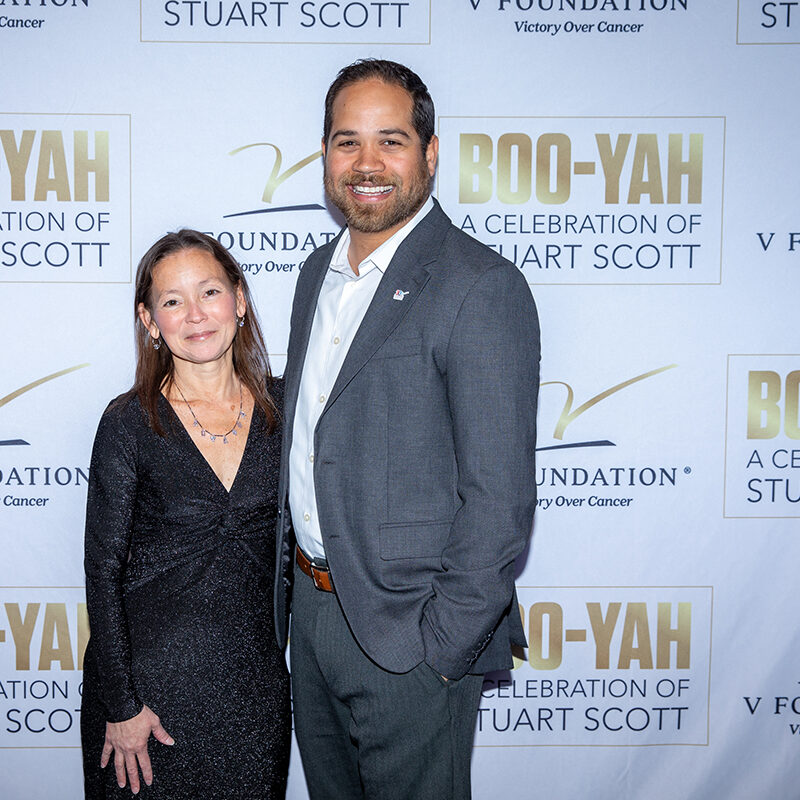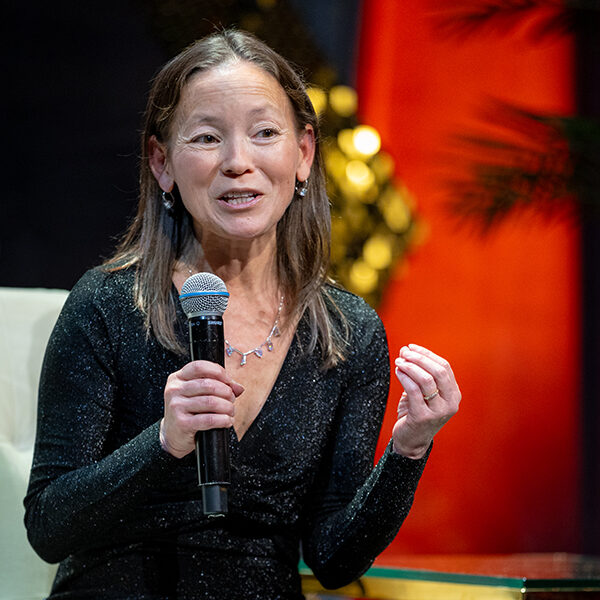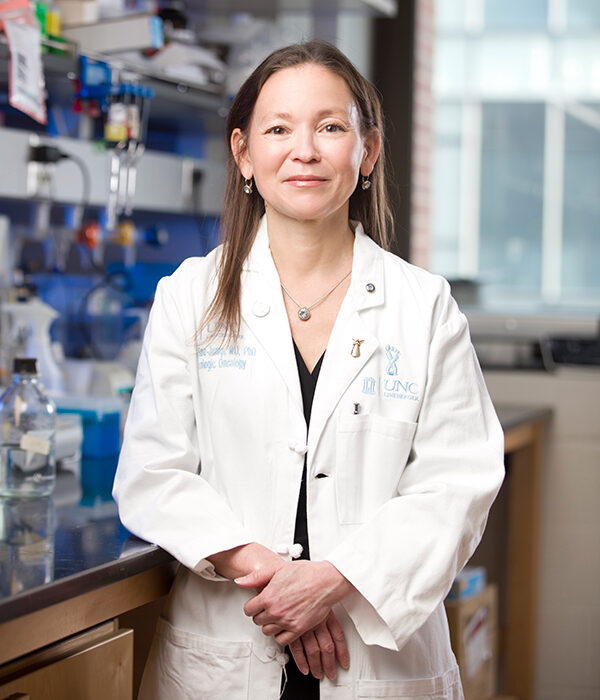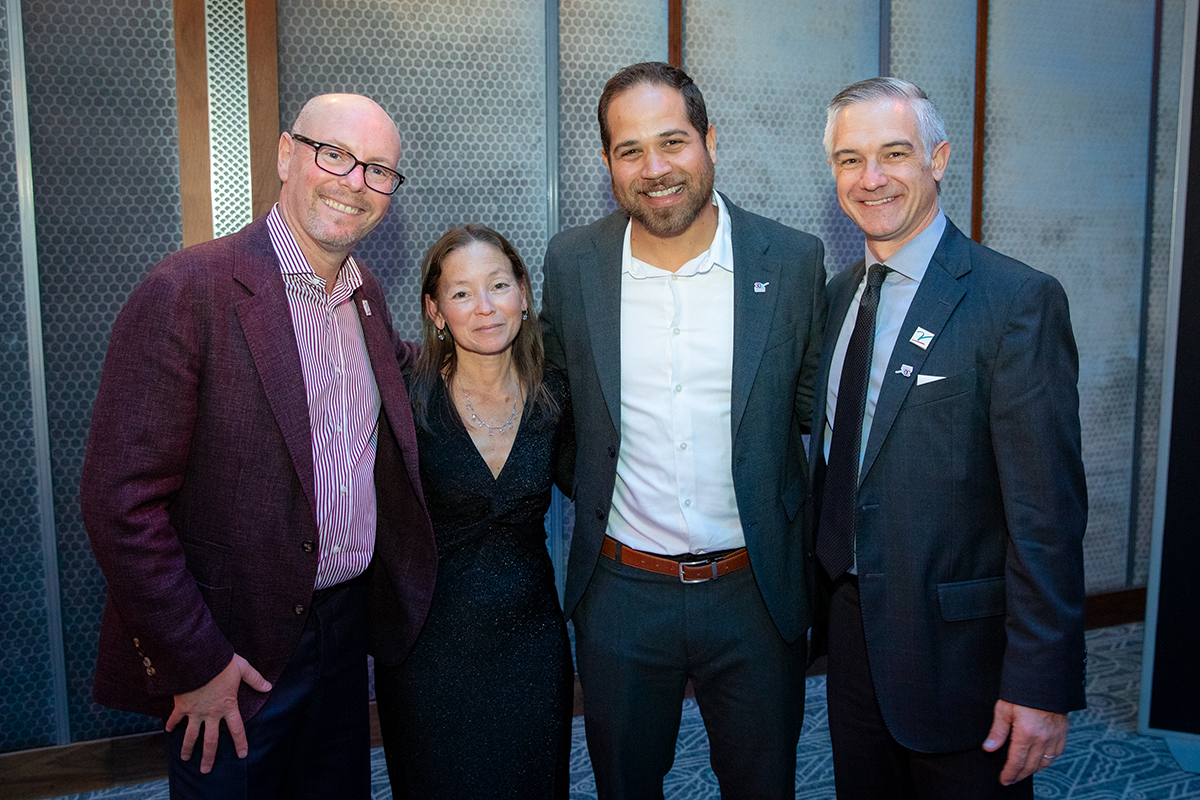Dr. Bae-Jump is Researching the “Why”
Endometrial cancer disproportionately impacts Black women compared to their white counterparts. Dr. Victoria Bae-Jump is researching why.
One of the most important questions a researcher can ask is, “Why?”.
V Foundation funded researcher Victoria Bae-Jump, M.D., Ph.D., continues to ask this vital question as it pertains to cancer disparities in endometrial cancer. Did you know cancer does not affect all patients equally, and impacts populations differently based on race, gender and socioeconomic factors?
Dr. Bae-Jump is a Professor of Gynecologic Oncology and the Director of the Lineberger Endometrial Cancer Center of Excellence at the University of North Carolina at Chapel Hill. As the recipient of the 2017 V Translational Grant, she and her team found that Black women with endometrial cancer suffer a higher mortality rate than white women.
Now, the question remains: why?
“Endometrial cancer is the only major cancer type to be increasing in frequency and mortality,” Dr. Bae-Jump said. “Which means, every year more women are being diagnosed with endometrial cancer and more women are dying from endometrial cancer.”


This trend continues to impact Black women disproportionately, with the mortality rate almost double those of their white counterparts.
“This is for reasons that we don’t really understand. It’s likely multifactorial, as many things are,” Dr. Bae-Jump said. “Likely involves social factors like access to care, but also involves some biology, because we know that Black women battle our most aggressive forms of endometrial cancer.
“Many times, when we study the social factors and the biological factors, we study them individually but likely one influences the other. The biology we see in Black women having worse outcomes probably comes from upstream social determinants that we don’t even know about. To make huge impacts, we have to understand that relationship.”
There are challenges to this research. One challenge is that clinical trials and population-based studies yield amazing information that can educate researchers, but Black women are underrepresented in these efforts.

“Our research team has tried to turn these challenges into an opportunity,” Dr. Bae-Jump said. “One of the studies I’m really proud of is the Carolina Endometrial Cancer Study. Much of the preliminary data to form that study came from the V Foundation grant.”
The Carolina Endometrial Cancer Study has an ambitious goal of enrolling 1,800 women across the state of North Carolina. While enrolling women of all ethnic backgrounds and races, the hope is 50% of the women in the study will be Black women. The women will undergo interviews and surveys, submit information about their treatments to the researchers, and grant permission to the team to dive into the biology behind their tumors, looking into the DNA, RNA and microbiome.
This study will yield terrific insights about the sociological and biological factors that different races and ethnicities face when battling endometrial cancer. And, as Dr. Bae-Jump credited, this would not be possible without V Foundation funding in the past.
“The overall goal [is] to build a comprehensive picture so that we can then come up with the very best ways to intervene, which are likely going to be multifaceted interventions to tackle a problem like that.”

Dr. Bae-Jump’s V Foundation funding came from the Stuart Scott Memorial Cancer Research Fund, which is dedicated to improving outcomes for underserved populations disproportionately impacted by cancer. Since its inception in 2015, the fund has awarded over 55 grants, like the one Dr. Bae-Jump received, and the research continues to dive deep into complex problems to level the playing field for all people and groups faced with cancer.
“When I first started out, endometrial cancer was understudied and underfunded, and the Stuart Scott Fund took a chance on my research,” Dr. Bae-Jump stated. “The V Foundation saw what we were talking about, that outcomes are worsening for endometrial cancer and for Black women – and cared.”
“It was just an amazing start to my career, and I’ll be forever grateful. Sadly, disparities for cancer among both men and women are not getting better, and so we need the Stuart Scott Fund more than ever to close that gap.”




